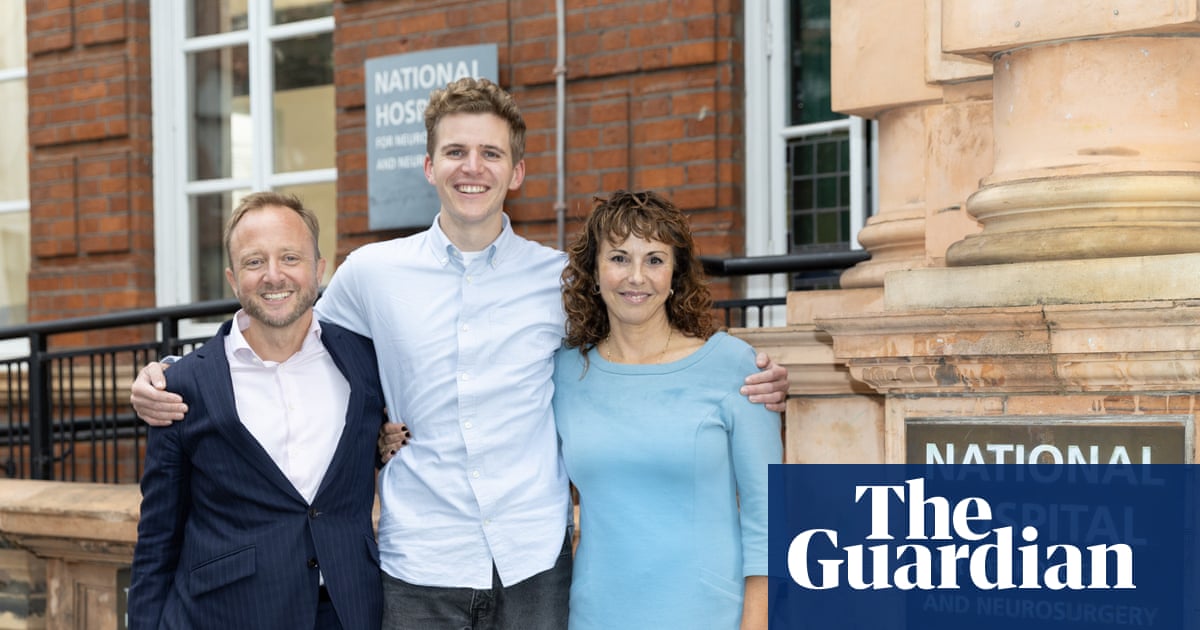Huntington’s disease, a devastating degenerative illness that runs in families, has been treated successfully for the first time in a breakthrough gene therapy trial.
The disease, caused by a single gene defect, steadily kills brain cells leading to dementia, paralysis and ultimately death. Those who have a parent with Huntington’s have a 50% chance of developing the disease, which until now has been incurable.
The gene therapy slowed the progress of the disease by 75% in patients after three years.
Prof Sarah Tabrizi, the director of University College London’s Huntington’s disease centre, who led the trial, said: “We now have a treatment for one of the world’s more terrible diseases. This is absolutely huge. I’m really overjoyed.”
The drug, which inactivates the mutant protein that causes Huntington’s, is delivered to the brain in a single shot during a 12- to 20-hour surgical procedure, meaning that it will be expensive. The breakthrough is sending ripples of hope through the Huntington’s community, many of whom have witnessed the brutal impact of the disease on family members.
The first symptoms, which typically appear when the affected person is in their 30s or 40s, include mood swings, anger and depression. Later patients develop uncontrolled jerky movements, dementia and ultimately paralysis, with some people dying within a decade of diagnosis.
With treatment, people would be able to work and live independently for significantly longer, Tabrizi said, and the dramatic impact of the therapy raises the possibility that it could prevent symptoms occurring if given at an earlier stage.
It is estimated that there are between 6,000 and 10,000 people with Huntington’s disease in the UK, and at least another 20,000 who are carriers of the faulty gene, meaning they are likely to develop it. However, only about a fifth of those in families affected by Huntington’s choose to test for the gene because current treatments only help with symptoms rather than slowing the disease’s relentless progression.
“Now I think many more people will come forward for the genetic test because there’s a treatment,” said Tabrizi.
Robyn Perry, 34, has been a carer for thepast 16 years to her father, who has Huntington’s, and tested positive herself at the age of 20 at a time when she was juggling studying with caring responsibilities. Her father’s diagnosis had a “domino effect” on her wider family, she said, with some learning they were also carriers of the Huntington’s gene. “It was so hard,” she said. “At the time there was no positivity.”
Perry, a support worker from Liverpool, now has mild motor symptoms and hopes she may benefit from gene therapy in future, saying that she and friends in the Huntington’s community shared tears of joy on learning of the trial results. “We’ve fought for so long for a cure,” she said. “For this day to come – it means absolutely everything for us and our families.”
The mutant Huntington’s gene contains instructions for cells to make a toxic version of a brain protein, called huntingtin. The therapy is delivered via a harmless virus that has been modified to deliver a specifically designed strand of DNA into neurons.
To avoid adverse reactions, the virus is infused very slowly through a micro-catheter into two separate brain regions, a complex procedure that takes 12 to 20 hours. Once the DNA is delivered into the neurons, it instructs the cells to block the production of the toxic version of huntingtin.
Results from the trial, involving 29 patients treated in the UK and US, have been released by the company uniQure, although the full details are yet to be published. Three years after treatment, those on the high dose of the drug had an average of 75% slowing of the progression of the disease, based on tests of motor function, cognition and the patients’ experience of day-to-day life.
There were also clear indicators in the brain that neurons were being spared, with levels of neurofilaments – a sign of cell death – being significantly lower in the treatment group.
“We are incredibly excited about these topline results and what they may represent for individuals and families affected by Huntington’s disease,” said Walid Abi-Saab, the chief medical officer of uniQure, adding that the company hoped to submit the drug for approval in the US early next year.
